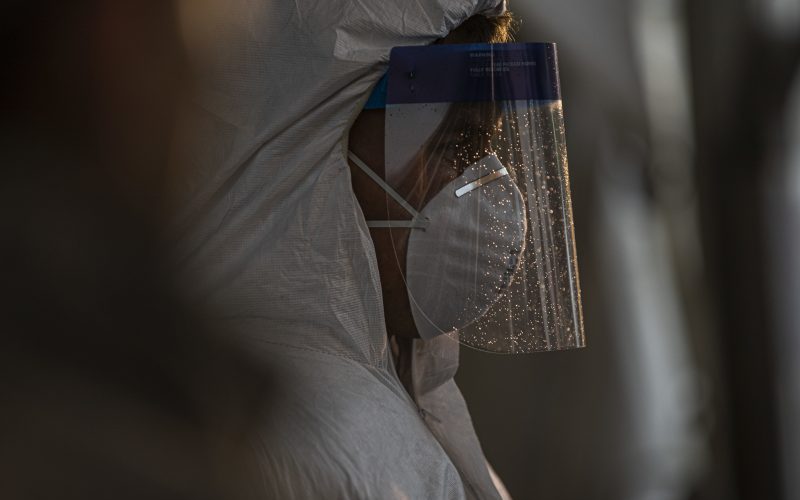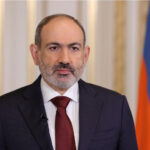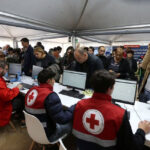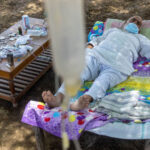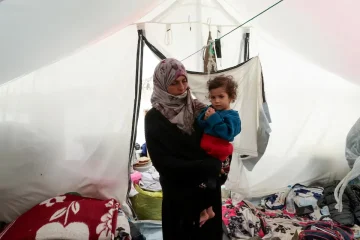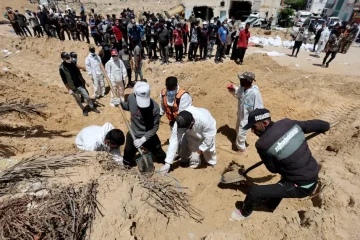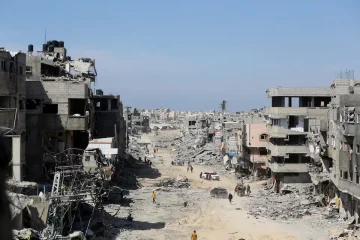NVARD HOVHANNISYAN and MARIA TSVETKOVA
EMMA Mkrtchyan died at home, bedridden and showing severe symptoms of COVID-19. Even though the 83-year-old Armenian’s blood oxygen levels were far below normal, the ambulance called by her family refused to take her to hospital.
“Even if they had taken her to hospital, there would anyway have been a queue and no places available,” her daughter-in-law, Gayane Mkrtchyan, told Reuters.
Armenia’s healthcare system is dangerously overstretched as it deals with one of the world’s worst COVID-19 outbreaks on top of an influx of refugees and soldiers wounded in Nagorno-Karabakh during the region’s bloodiest fighting in more than 25 years.
A ceasefire was struck late on Monday and Russian peacekeeping troops have deployed as part of the deal to end a conflict over the enclave, which is populated and controlled by ethnic Armenians but internationally recognised as part of Azerbaijan.
But healthcare officials say Armenia has another war to fight.
With more than 3,600 infections per 100,000 people, it ranks among the top 10 countries per capita in terms of cases.
Nationwide, just five intensive care beds were available for COVID-19 patients as of Friday, a spokeswoman for the health ministry said.
“Our doctors, as well as the whole of Armenia, are fighting a war on two fronts now,” said Nune Bakunts, deputy director of Armenia’s National Centre for Disease Control and Prevention. “The enemy is on one side and coronavirus is on the other.”
Some in Armenia are unhappy with the terms of a peace deal under which Azerbaijan will keep territory gained over six weeks of conflict. Crowds stormed government buildings overnight, calling it a “betrayal”.
Should more people leave Nagorno-Karabakh, pressure on the healthcare system would increase. Azerbaijan has conquered the enclave’s second-largest city and, under the terms of the deal, ethnic Armenian forces must give up control of other territories between now and Dec. 1.
The U.N. High Commissioner for Human Rights, Michelle Bachelet, said last week that some 90,000 ethnic Armenians had fled the fighting in Nagorno-Karabakh for Armenia.
BOMB SHELTERS AND FUNERALS
The number of daily COVID-19 cases in Armenia has grown nearly sevenfold since fighting began on September 27 and now stands at more than 2,000.
Bakunts said the spread of the virus had been rapid in crowded basements and bomb shelters in Nagorno-Karabakh, where few if any people wear face masks. Funerals of those killed in the conflict had also been a catalyst in the spread, she said.
“Young people are killed and brought back from the front lines,” she said. “How could we ban everyone from paying their respects to heroes?”
With a population more than three times that of Armenia, Azerbaijan has felt the pandemic’s impact less severely. The country has an infection rate of nearly 660 per 100,000 people.
But with new infections hitting records throughout most of last week – the 1,663 new cases reported on Sunday was the highest daily total since the pandemic began – health officials in Azerbaijan also warn against complacency.
“All our doctors want to look after our servicemen, but we cannot ignore the coronavirus problem,” said Yagut Garayeva, head of disease control and prevention at the TABIB state medical agency in Baku.
Mkrtchyan died on November 2 at her home in Echmiadzin, about 20 km (12 miles) west of Armenia’s capital, Yerevan. Her blood oxygen level had dropped to 75%; according to a health ministry order, doctors should consider hospitalization for levels below 93%.
Her daughter-in-law accepts that she couldn’t have been saved, even if she had been taken to hospital. “She would have been registered and returned home to await her turn.” – Thomson Reuters Foundation.

